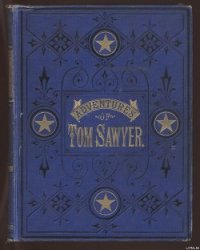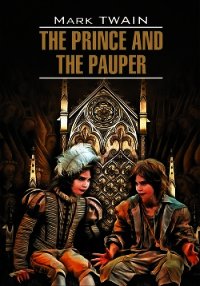Английский язык с Марком Твеном. Принц и нищий (Mark Twain. The Prince and the Pauper) - Twain Mark (читать онлайн полную книгу .TXT) 📗
'In truth, yes (поистине, да), so please you, sir (с вашего позволения, сэр), save when one is hungry (кроме как когда голодаешь). There be Punch-and-Judy shows (там бывают представления с Панчем и Джуди), and monkeys (и обезьянками) — oh, such antic creatures (о, такие потешные твари)! and so bravely dressed (и так смело = пестро одеты)! — and there be plays (и бывают пьесы) wherein they that play (где те, которые играют) do shout and fight (кричат и дерутся) till all are slain (пока все /не/ бывают убиты), and 'tis so fine to see (и это так прекрасно видеть), and costeth but a farthing (и стоит только фартинг) — albeit 'tis main hard to get the farthing (хотя обычно тяжело раздобыть фартинг), please your worship (да будет угодно вашему величеству).'
'Tell me more (расскажи мне еще: «больше»).'
'We lads of Offal Court do strive (мы, мальчишки из Тупика Отбросов) do strive against each other with the cudgel (соревнуемся друг с другом: «друг против друга» на палках), like to the fashion of the 'prentices, sometimes (как подмастерья, иногда; fashion — образец, мода; apprentice — подмастерье).'
The prince's eyes flashed (глаза принца вспыхнули). Said he (сказал он):
'Marry (Матерь Божья), that would I not mislike (это я бы не прочь; to mislike — не любить). Tell me more (расскажи мне еще).'
'We strive in races, sir (мы соревнуемся в беге, сэр), to see who of us shall be fleetest (что увидеть = узнать, кто из нас будет самый быстрый).'
'That would I like also (это бы мне понравилось тоже). Speak on (говори дальше).'
'In summer, sir (летом, сэр), we wade (мы переходим вброд) and swim in the canals (и плаваем в канавах) and in the river (и в реке), and each doth duck his neighbor (и каждый окунает своего соседа; doth — устар. вместо does; to duck — нырять; окунать), and spatter him with water (и забрызгивает его водой), and dive and shout and tumble and — (и ныряет, и кричит, и бултыхается, и)'
''Twould be worth my father's kingdom (это стоило бы королевства моего отца) but to enjoy it once (только чтобы насладиться этим однажды)! Prithee go on (пожалуйста, продолжай).'
'We dance and sing (мы пляшем и поем) about the Maypole in Cheapside (вокруг майского шеста в Чипсайде); we play in the sand (мы играем в песке), each covering his neighbor up (закапывая своих товарищей: «каждый покрывая своего соседа доверху»); and times we make mud pastry (и временами мы лепим пироги из грязи; mud — грязь) — oh, the lovely mud (о, эта прекрасная грязь), it hath not its like for delightfulness in all the world (ей нет равных по прелести во всем мире)! — we do fairly wallow in the mud, sir (мы изрядно валяемся в грязи, сэр), saving your worship's presence (не в обиду вам сказать: «щадя присутствие вашей милости»).'
'Oh, prithee (о, пожалуйста; устар. вместо please), say no more (не говори больше), 'tis glorious (это восхитительно)! If that I could but clothe me in raiment like to thine (если бы я мог только облечь себя в одежду, подобную твоей), and strip my feet (и разуть мои ноги), and revel in the mud once (и насладиться в грязи один раз: «однажды»), just once (только разок), with none to rebuke me or forbid (чтобы никто меня не отчитывал и не запрещал (мне): «с никем чтобы отчитывать…»), meseemeth (мне кажется — устар.) I could forego the crown (я мог бы отказаться от короны)!
laugh [la:f], doubt [daut], revel [revl], rebuke [r?`bju:k]
'It is a quaint and marvelous thought! Thy pardon, I had not meant to laugh. But thy good Nan and thy Bet shall have raiment and lackeys enow, and that soon, too: my cofferer shall look to it. No, thank me not; 'tis nothing. Thou speakest well; thou hast an easy grace in it. Art learned?'
'I know not if I am or not, sir. The good priest that is called Father Andrew taught me, of his kindness, from his books.'
'Know'st thou the Latin?'
'But scantily, sir, I doubt.'
'Learn it, lad: 'tis hard only at first. The Greek is harder; but neither these nor any tongues else, I think, are hard to the Lady Elizabeth and my cousin. Thou shouldst hear those damsels at it! But tell me of thy Offal Court. Hast thou a pleasant life there?'
'In truth, yes, so please you, sir, save when one is hungry. There be Punch-and-Judy shows, and monkeys — oh, such antic creatures! and so bravely dressed! — and there be plays wherein they that play do shout and fight till all are slain, and 'tis so fine to see, and costeth but a farthing — albeit 'tis main hard to get the farthing, please your worship.'
'Tell me more.'
'We lads of Offal Court do strive against each other with the cudgel, like to the fashion of the 'prentices, sometimes.'
The prince's eyes flashed. Said he:
'Marry, that would I not mislike. Tell me more.'
'We strive in races, sir, to see who of us shall be fleetest.'
'That would I like also. Speak on.'
'In summer, sir, we wade and swim in the canals and in the river, and each doth duck his neighbor, and spatter him with water, and dive and shout and tumble and —'
''Twould be worth my father's kingdom but to enjoy it once! Prithee go on.'
'We dance and sing about the Maypole in Cheapside; we play in the sand, each covering his neighbor up; and times we make mud pastry — oh, the lovely mud, it hath not its like for delightfulness in all the world! — we do fairly wallow in the mud, sir, saving your worship's presence.'
'Oh, prithee, say no more, 'tis glorious! If that I could but clothe me in raiment like to thine, and strip my feet, and revel in the mud once, just once, with none to rebuke me or forbid, meseemeth I could forego the crown!'
'And if that I could clothe me once (а если бы я мог облачить себя один раз), sweet sir (милый сир), as thou art clad (как вы одеты) — just once (только разок) —'
'Oho (ого), wouldst like it (тебе бы это понравилось)? Then so shall it be (тогда так и будет). Doff thy rags (снимай твои лохмотья), and don (и надевай) these splendors (эти красоты), lad (парень)! It is a brief happiness (это короткое счастье), but will be not less keen for that (но (оно) не будет менее острым от этого). We will have it while we may (мы будем обладать им, пока можем), and change again (и поменяемся снова) before any come to molest (прежде чем кто-нибудь придет = начнет приставать/досаждать).'
A few minutes later (несколькими минутами позже) the little Prince of Wales was garlanded (маленький принц Уэльский был облачен) with Tom's fluttering odds and ends (в развевающееся тряпье Тома), and the little Prince of Pauperdom (а маленький принц Царства бедноты) was tricked out (был выряжен) in the gaudy plumage of royalty (в яркий наряд члена королевской фамилии). The two went (двое пошли) and stood side by side (и встали бок о бок) before a great mirror (перед большим зеркалом), and lo (и глянь-ка), a miracle (чудо): there did not seem to have been any change made (казалось, не произошло никакой перемены)! They stared at each other (они уставились друг на друга), then at the glass (потом на зеркало), then at each other again (потом друг на друга снова). At last the puzzled princeling said (наконец озадаченный принц сказал):
'What dost thou make of this? (что ты об этом думаешь: «что ты делаешь из этого»)'
'Ah, good your worship (ах, ваша милость), require me not to answer (не требуйте, чтобы я отвечал). It is not meet (это неподобающе) that one of my degree (чтобы человек моего звания) should utter the thing (произнес это: «эту вещь»).'
'Then will I utter it (тогда желаю я произнести это). Thou hast the same hair (ты имеешь такие же волосы), the same eyes (такие же глаза), the same voice and manner (такой же голос и манеры), the same form and stature (такую же фигуру и стать), the same face and countenance (такие же черты и выражение лица; face — лицо; countenance — выражение лица), that I bear (которые я имею: «ношу»). Fared we forth naked (если бы мы вышли нагишом), there is none could say (нет никого (кто) мог бы сказать) which was you (который ты), and which the Prince of Wales (и который — принц Уэльский). And, now that I am clothed as thou wert clothed (и, раз теперь я одет, как ты был одет), it seemeth I should be able the more nearly to feel (кажется, я должен быть способным еще ближе = лучше почувствовать) as thou didst (как ты сделал = что ты почувствовал) when the brute soldier (когда тот грубый солдат) — Hark ye (взгляни-ка), is not this a bruise (не синяк ли это) upon your hand (на твоей руке)?'




